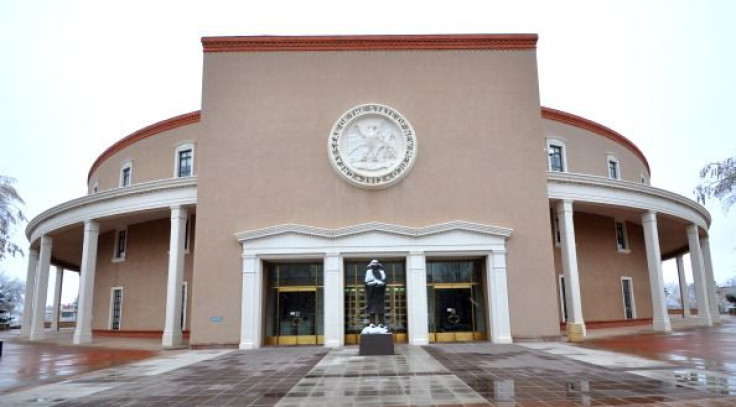Right To Work: Growing National Momentum Highlighted In New Mexico Senate Hearing

New Mexico is the latest state to consider going to “right to work” -- that is, prohibiting unions from collecting fees from all the workers they represent. On Sunday, the state's Senate Public Affairs Committee held a contentious hearing on proposed legislation that would do just that.
Against a backdrop of opposition from labor groups, supporters rolled out familiar arguments. “All I believe this bill does is allow people to go to work and keep money in their pockets,” Republican state Sen. William Sharer said.
The intent ... is to guarantee the individual workers choice,” said state Rep. Dennis Roch, a Republican who shepherded a right-to-work bill through the GOP-majority House last month. Republican Gov. Susana Martinez also supports right to work. Nonetheless, it’s unlikely to muster the necessary votes in the Democratic-controlled Senate, where opponents have vowed to defeat the proposal. A committee vote is anticipated Tuesday, according to local news outlet KRQE.
Still, the bill’s progress illustrates surging momentum for right to work nationwide. While limited for decades to the relatively anti-union South and West, the measures have, in recent years, managed to gain traction in once unimaginable spots: In 2012, Indiana and Michigan both passed right-to-work laws. The latter has symbolic significance: It is home to the United Auto Workers (UAW), whose Depression-era organizing ushered in the foundation of modern American labor law.
Meanwhile, on Monday, Wisconsin Gov. Scott Walker, who is expected to seek the Republican nomination for president in 2016, signed legislation that makes the Badger State the 25th right-to-work state in the nation. In an immediate sense, the momentum stems from recent Republican takeovers of state governments.
GOP electoral sweeps explain the wave in the Midwest. And last November, Republicans won control of the New Mexico state House for the first time since 1953. In West Virginia, too, the new GOP majority has flirted with the possibility of passing right to work. And in Illinois, newly elected Republican Gov. Bruce Rauner wants to create “right-to-work zones” on the county and municipal levels. He also tried to unilaterally implement such measures for state employees, but that plan has run into legal trouble.
The cause has some well-endowed -- and well-connected -- benefactors. Its top lobby shop, the National Right To Work Committee, receives funding from billionaire conservative-activist brothers Charles and David Koch and works with the American Legislative Exchange Council (ALEC), which pushes conservative policies in state legislatures.
The political stakes of right to work are significant. The laws tend to reduce union ranks and spark funding challenges for organized labor, which still has to represent workers who aren’t paying any fees. That, in turn, means unions have less overall money to spend in the political arena, where they tend to support Democrats and advocate progressive policies.
© Copyright IBTimes 2024. All rights reserved.












